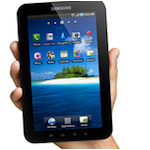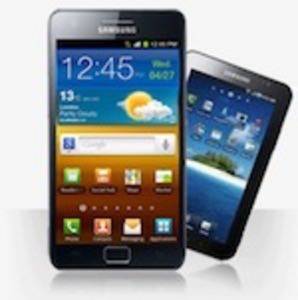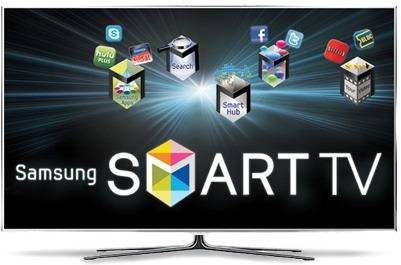The king of digital devices is ready to impose its will on the rest of the ecosystem in 2012. It is lining up billions of dollars in investments and is rumored to be in on every significant acquisition or partnership. Its empire sprawls across televisions, smartphones, laptops and computer processors. What is Apple doing now, you might ask. That would be the wrong question. The biggest influencer of the entire digital ecosystem does not hail from Cupertino. Look across the Pacific to South Korea. There, you will find Samsung.

Billions In The Pipeline
Yesterday two bits of interesting news popped up around Samsung. Foremost, Boy Genius Report said that BlackBerry maker Research In Motion was pushing hard to be acquired by the Korean manufacturer. While we have come to discount BGR and its never-ending line of “sources close to the situation,” it is a testament to Samsung that it would even be considered in such a large and ambitious acquisition. Today, Reuters reports that Samsung has no interest in purchasing the woeful Canadian smartphone manufacturer.

While Samsung purchasing RIM is an oddball blip in the frenetic technology news stream, the real news from Samsung yesterday has a much more tangible impact. According to the Wall Street Journal, Samsung has money to burn. The company plans on investing $41.6 billion in 2012 to help drive growth to its various verticals, including smart televisions and smartphones. That is a rise from $36 billion the company spent last year.
“Samsung has decided to make the biggest-ever investment of 47.8 trillion won ($41.6 billion) this year in order to solidify its dominance in key businesses in the global market and to dominate new growth areas in advance,” The Wall Street Journal reported.
Purchasing RIM would probably not constitute a “new growth area” for Samsung. It is the leading smartphone manufacturer in the world and second largest cellphone maker behind Nokia. BlackBerry is a dying platform and device line that would be a great weight around Samsung’s neck much like Motorola will weigh down Google if the search giant does not spin out the device manufacturer if the acquisition is approved.
No other company outside of Apple in the device ecosystem has the type of clout and cash to back it up as Samsung. Look at what Apple does with its billions to control its supply line for components in iOS devices. One of the reasons that the iPhone and iPad are so profitable is that Apple makes large deals for components looking years, not months, down the line. It makes Apple very hard to compete with when it has a steady supply of displays or processors locked up at reasonable prices. Samsung is the manufacturer of the A5 chip that runs the iPhone 4S and even though the two companies are battling in patent courts around the world, The Wall Street Journal says that business relationship is still in tact.

The report says that Samsung is likely to spend many of those billions of dollars locking up components. It is a page straight out of Apple’s playbook. For a company that is often accused of copying Apple, this may be one the smartest acts of mimicry Samsung could make.
Putting Pressure On The Ecosystem
Samsung does not just thrive because of its prominent place within the OEM environment, but also in how it effects the business decisions of other companies trying to compete with it. As we noted last week, Samsung has set the standard for how the Android/Windows Phone ecosystems deals with the mobile carriers in the United States. By accepting the desire of the carriers to have differentiated Android devices on shelves, Samsung forces the hands of other manufacturers such as HTC, Motorola and LG to come out with different and unique smartphones and tablets. To a certain extent, this is not a bad thing. One of the reasons that Android does so well is that it competes against itself. There is depth and differentiation in the Android ecosystem and that is not a bad thing. Fragmentation is a different issue.
What Samsung, like Apple, does is cast itself as a leader. The game is now to follow the leader. When you have to chase a strong frontrunner to a certain extent you have to play by the rules that the leader sets. Either that or differ from the leader so wildly so as to be seen as “unique.” Examples of that would be how T-Mobile and Sprint try to differentiate themselves from AT&T and Verizon (which are much more symbiotic than you would guess at first glance) by having different data plans and devices.

Samsung dominance is not all about smartphones and processors though. The company is the leader in television manufacturing as well. Our founder, Richard MacManus, was impressed with how the company “doubled down” on smart TVs during the Consumer Electronics Show last week in Las Vegas. Samsung dominance in TVs and its ability to connect them to the Internet via Android or other software makes it very hard for new entrants into the ecosystem, such as Apple. Samsung is likely trying to lock down as many device components to smart TVs for years to come in the same way that Apple does with its iOS devices. That is the most tangible way a company can protect its most profitable vertical.
The fact of the matter is that Samsung is strong, getting stronger and will dictate to the rest of the market, not the other way around. Depends on your perspective, but that could be good or bad for the rest of the ecosystem.

















